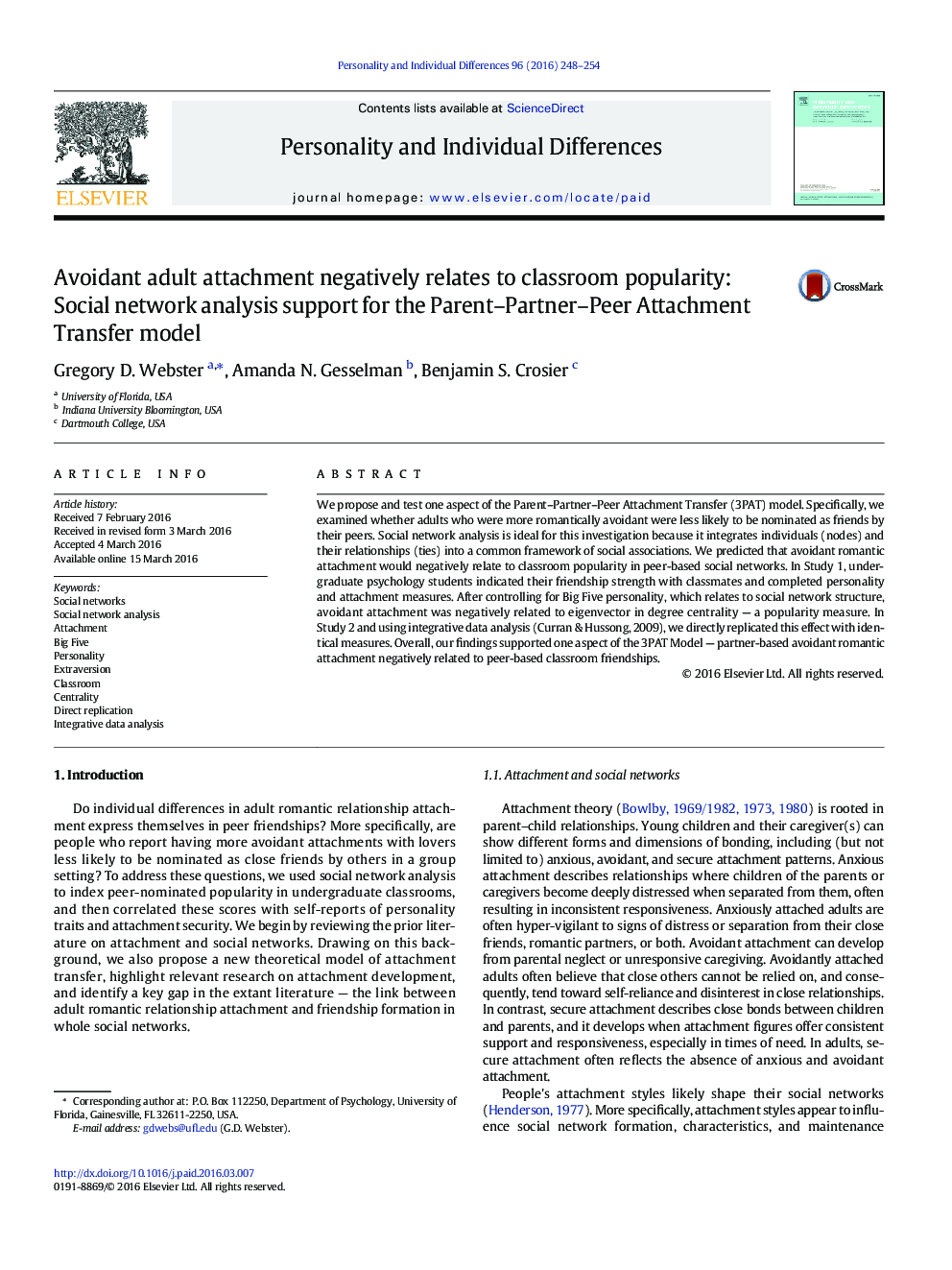| Article ID | Journal | Published Year | Pages | File Type |
|---|---|---|---|---|
| 7250162 | Personality and Individual Differences | 2016 | 7 Pages |
Abstract
We propose and test one aspect of the Parent-Partner-Peer Attachment Transfer (3PAT) model. Specifically, we examined whether adults who were more romantically avoidant were less likely to be nominated as friends by their peers. Social network analysis is ideal for this investigation because it integrates individuals (nodes) and their relationships (ties) into a common framework of social associations. We predicted that avoidant romantic attachment would negatively relate to classroom popularity in peer-based social networks. In Study 1, undergraduate psychology students indicated their friendship strength with classmates and completed personality and attachment measures. After controlling for Big Five personality, which relates to social network structure, avoidant attachment was negatively related to eigenvector in degree centrality - a popularity measure. In Study 2 and using integrative data analysis (Curran & Hussong, 2009), we directly replicated this effect with identical measures. Overall, our findings supported one aspect of the 3PAT Model - partner-based avoidant romantic attachment negatively related to peer-based classroom friendships.
Keywords
Related Topics
Life Sciences
Neuroscience
Behavioral Neuroscience
Authors
Gregory D. Webster, Amanda N. Gesselman, Benjamin S. Crosier,
